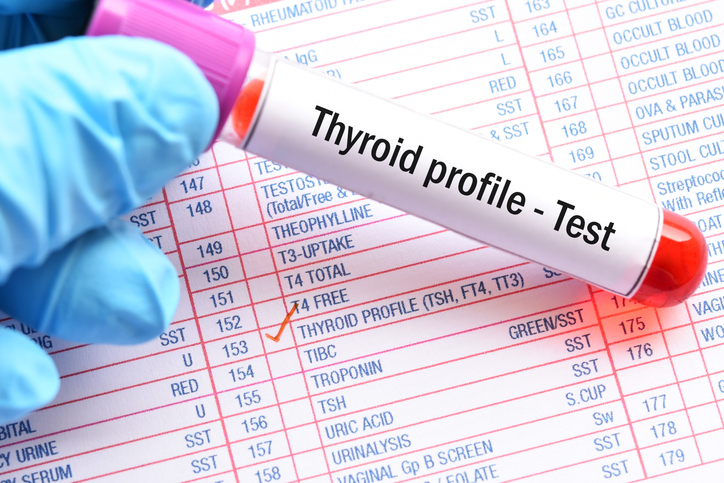
TSH Test Interpetation | Understand Your TSH Test Results
TSH Test Interpretation Disagreements in Medical Community
There is no consensus about the best TSH test interpretation. TSH, or thyroid stimulating hormone, is produced by your pituitary gland and is essentially the gas pedal for how much thyroid hormone (TSH)your thyroid produces. It is an important test when diagnosing hypothyroidism or hyperthyroidism.
When TSH levels are “high,” it indicates that your body is not producing enough thyroid hormone (see hypothyroidism syptoms article) and that your pituitary gland is trying very hard to tell your thyroid to produce more. When TSH levels are “low,” it indicates that your pituitary has taken its foot off of the gas pedal and is telling your thyroid to slow down production of T3 and T4.
However, exactly what “low” and “high” TSH levels actually are disputed in the medical community.
Nearly all medical practitioners would probably agree that a range of 1.0 uIU/ml – 2.0 uIU/ml indicates an optimally functioning, healthy thyroid. Many physicians accept a range for TSH somewhere in the region of .45 uIU/ml – 4.5 uIU/m, give or take a little depending on the source. The diagnostic range for “primary” or, in layman terms “bonafide”, hypothyroidism is more than 5.0, with more than 10.0 being thyroid failure. Less than .3 is diagnostically considered “primary” hyperthyroidism.
These numbers aside, there is a dirth of evidence – and many functional medicine practitioner strongly agree – that TSH levels above 2.0 uIU/ml indicate a lower than optimally functioning thyroid. That is, a less than healthy thyroid.
Evidence For interpreting TSH Test Results
It will only take you a little bit of time researching “normal” TSH levels to ascertain that normal is different from person to person. That being said, a recent study reported in Lancet reported teh following results from TSH testing:
- TSH greater than 2.0 increased 20 year risk of hypothyroidism (also reported in the Whickham Survey)
- TSH 2.0-4.0 hypercholesterolemia and cholesterol levels declines in response to T4 therapy
- TSH>4.0 Greater risk of heart disease
- TSH>4.0 Many people will experience symptoms of hypothyroidism
Other studies confirm the finding above. It’s rather condemning of the “old” TSH range that levels above 2.0 response positively to thyroid medication.
In 2003 the American Association of Clinical Endocrinologists released a press release supporting the upper limit of the reference range from 5.0 uIU/ml to 3.0 uIU/ml. Likewise, functional medicine practitioners usually look for levels below 2.0, as the belief is that a less than healthy thyroid is not desirable.
What is Normal TSH Level
See this article for a full analysis of normal TSH levels.
As said, there is not necessarily a “normal” TSH level per se, but functional medicine practitioners look for TSH levels in the 1.0-2.0 range as an indication of a healthy thyroid. Other factors that will influence your apparent “normal” value are:
- Genetic factors
- How healthy you feel
- Any signs of hypothyroidism or hyperthyroidism
Of course, much higher TSH levels, such as anything above 10, are significant signs of hypothyroidism.
Wondering what your levels are? You don’t know if you don’t test. Knowledge is power! Order a test yourself!
Thank you for reading! Your path to enhanced cellular wellness starts here!
Health Disclaimer: It is recommended the reader of this site consult with a qualified health care provider of their choice when using any information obtained from this site, affiliate sites and other online websites and blogs. Please consult your health care provider before making any healthcare decisions or for guidance about a specific medical condition.